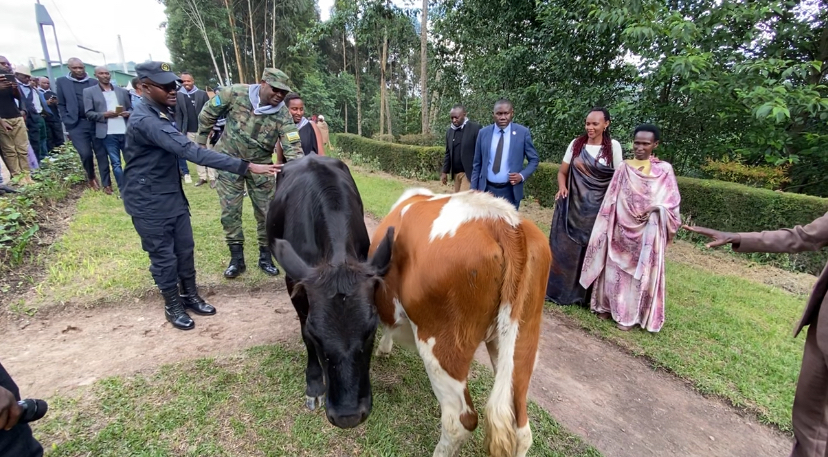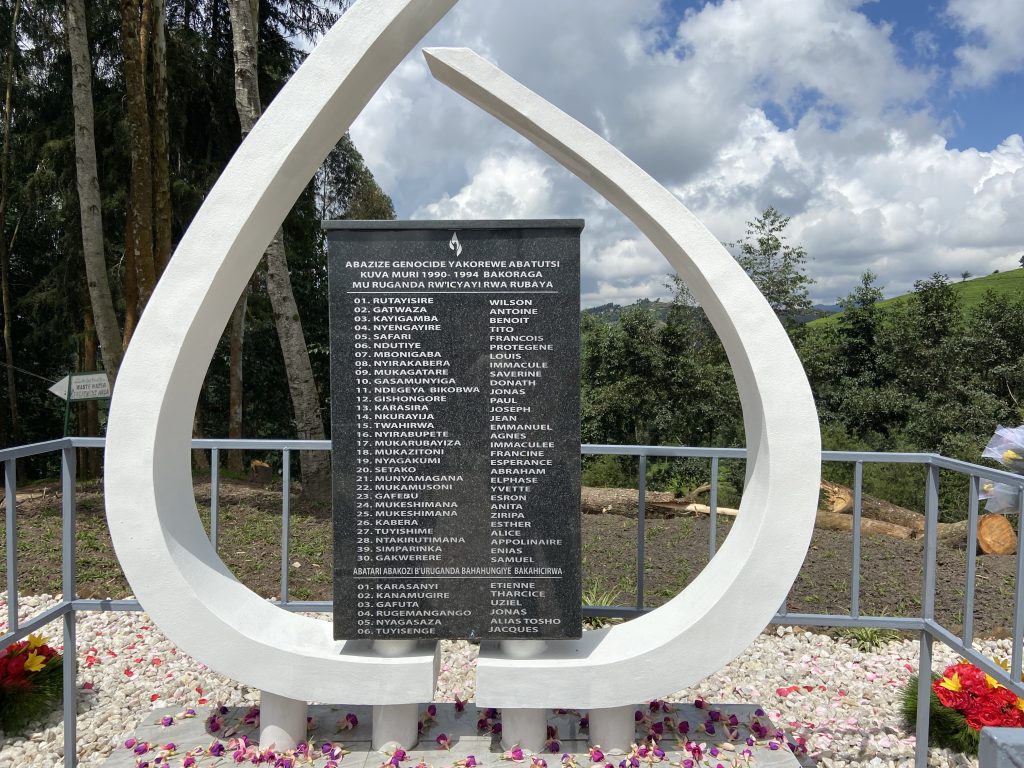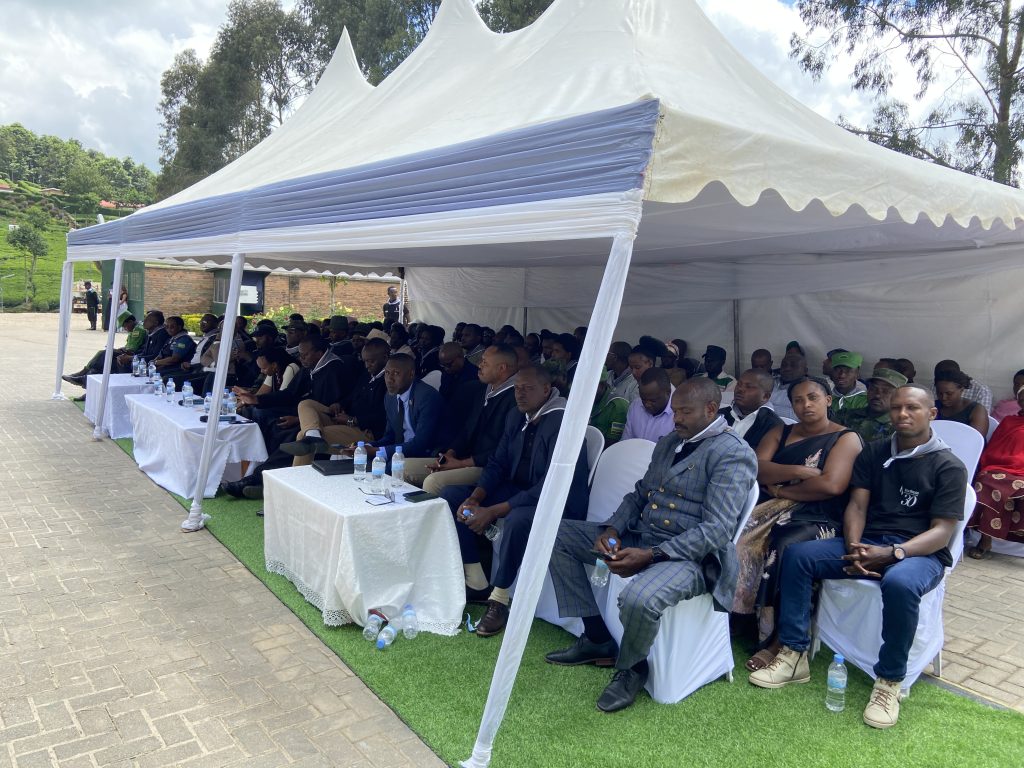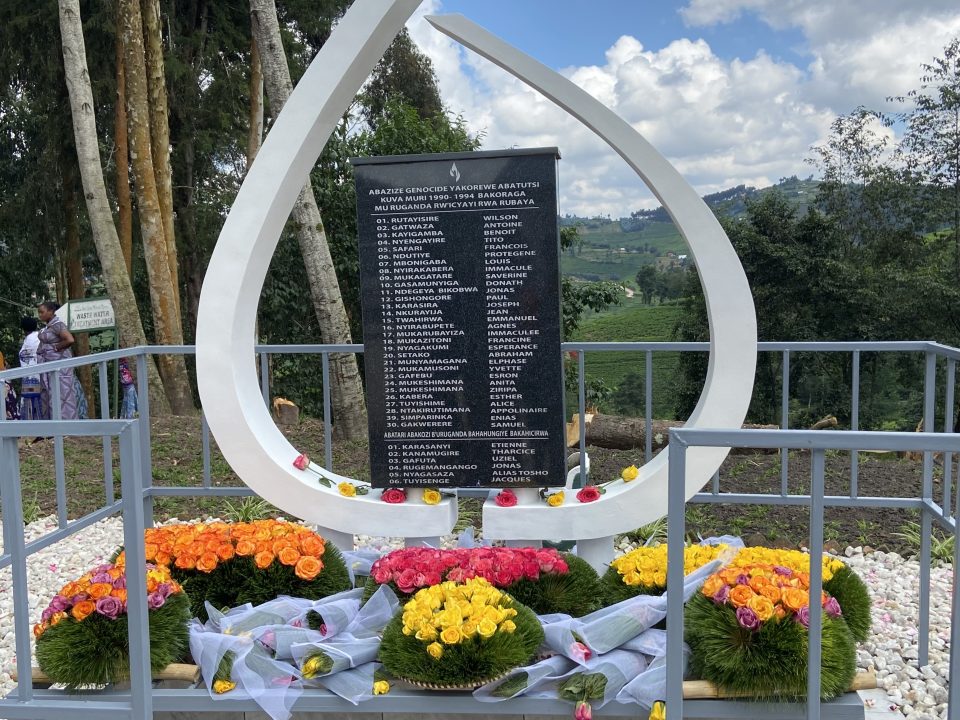Rubaya Tea Factory, on May 16th together with residents of Muhanda sector, Ngororero district, and different official commemorated the factory’s workers and other people who were killed in the factory during the 1994 Genocide against Tutsi.
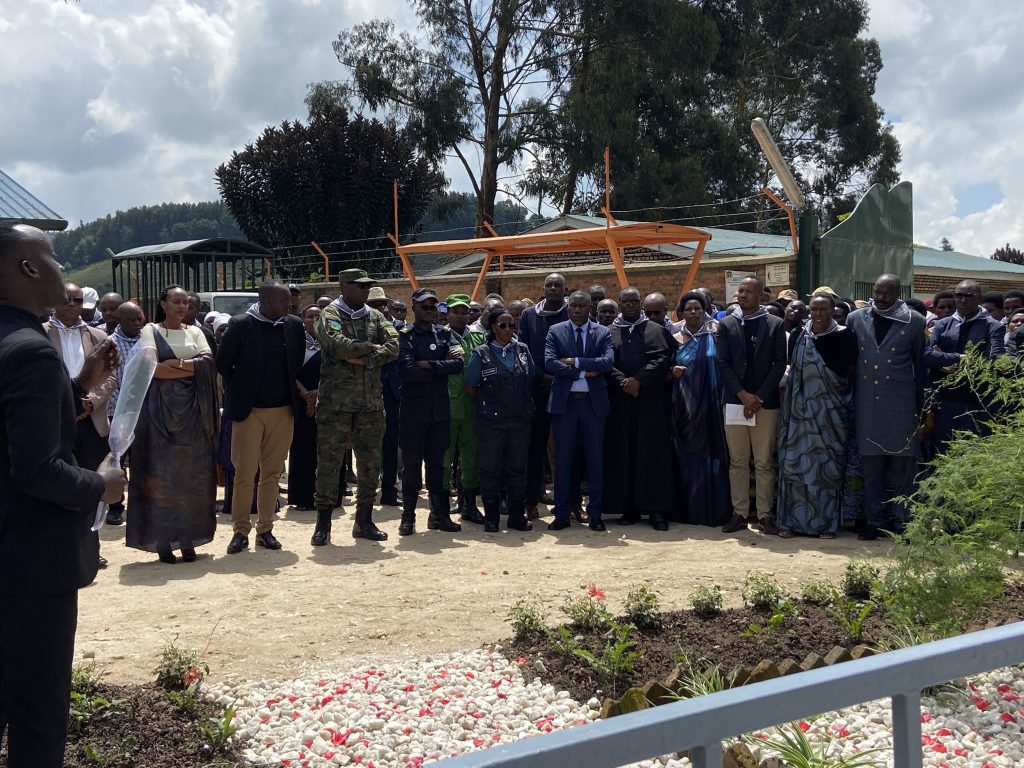
This factory and it’s surrondings saw Genocide in it’s worst ways, after Habyarimana’s body was brought and kept there a few days after he was killed.
Survivors from Muhanda sector where the factory is located say bringing Habyarimana’s body was a nightmare to them, because even some workers were paid by militias to kill Tutsis in the surrounding areas.
Nshuti Emmanuel whose father was killed in the factory said “ I was young but everyone was affected. My father and other Tutsis were killed in Kesho on April 8th, in the spirit of keeping Habyarimana’s body warm and entertained.”
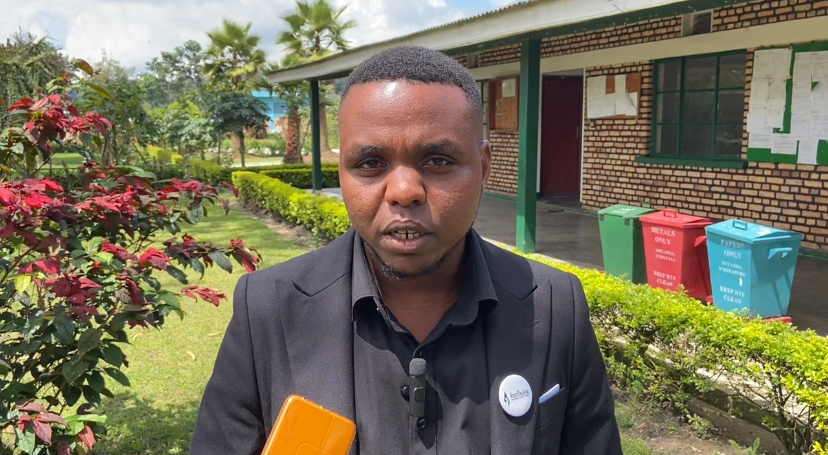
“Although we are resilient today and have lived as well as we can afford, we are still saddened. Thirty years after the Genocide a lot of people still haven’t found their beloved’s bodies for a proper burial. We request all people with information of bodies whereabouts to give the information and let people have a good final rest.” Nshuti added.
Beatrice Mukandoli who survived from Kesho said that things got worse after Habyarimana’s body was brought to the factory.
“Habyarimana had roots in Ngororero. Bringing his body here made things worse for us who were trying our best to fight and survive. Guns which were stored here in the factory were used and it got very bad for our friends and families.” She said.
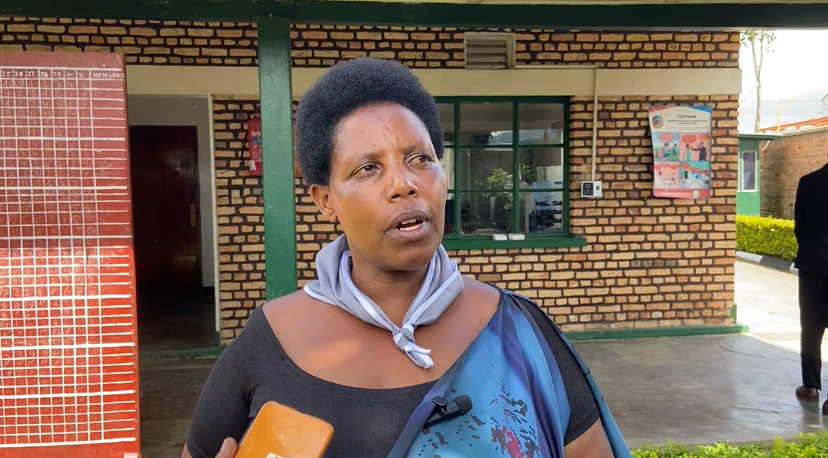
Emile Mukiza, Rubaya Tea Factory’s General Director said that: “ Commemorating within the factory takes us back to our dark history. Tutsis were hunted and killed in the factory’s tea plantations, which was known as gutema ibihuru, where instead of protecting them, the factory’s then authorities ordered and paid for Tutsis deaths.”
Benjamine Mukunduhirwe, Ngororero’s Vice Mayor in charge of social affairs says there is still a journey to healing.
”There were people who were not being hunted during the Genocide. We request anyone with information of people who haven’t got a decent burial to come forward with that information that can help in people’s healing journey.” Mukunduhirwe said.
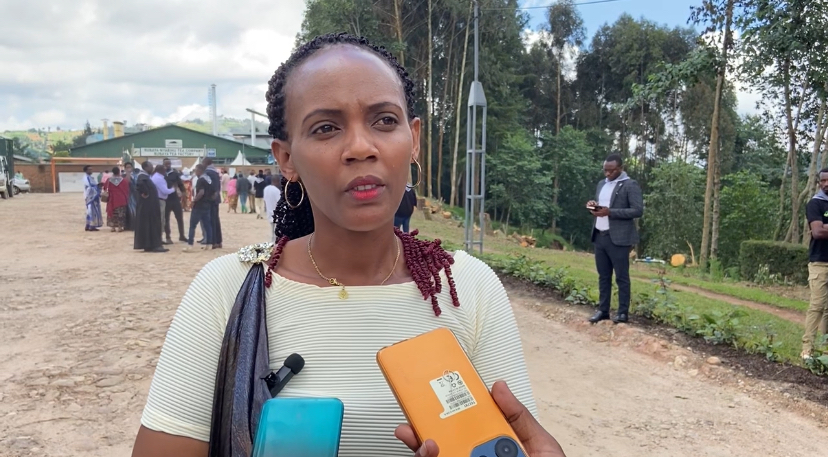
Rubaya Tea Factory also gave cows to two Genocide survivors from Muhanda sector to help them in their daily lives.
